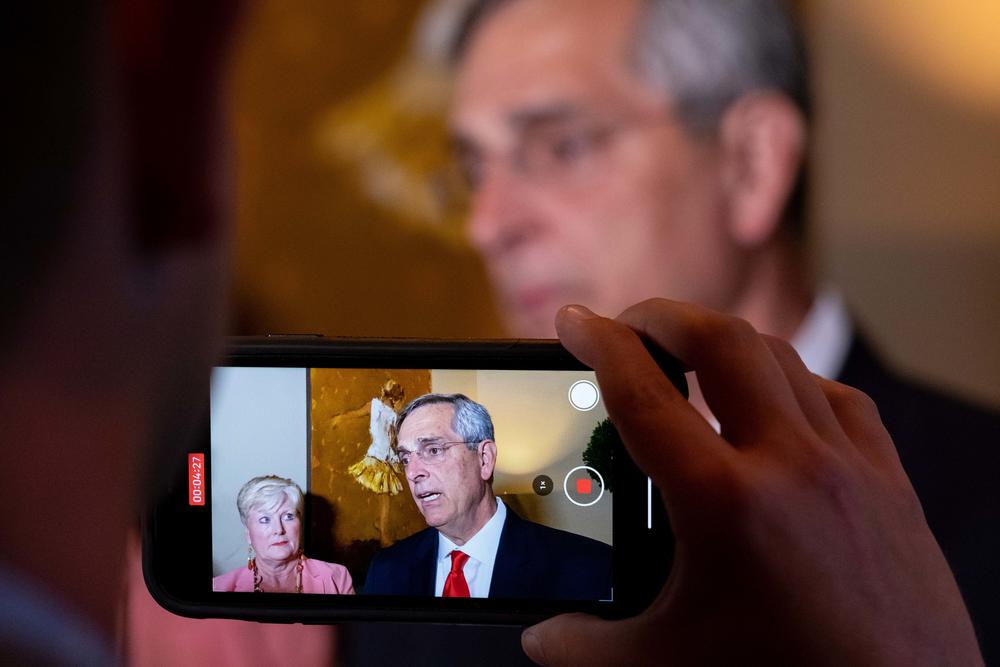
Caption
Incumbent Georgia Secretary of State Brad Raffensperger talks with journalists as he arrives for an election night party Tuesday evening, May 24, 2022, in Peachtree Corners, Ga. Raffensperger testified June 2 before a special grand jury in Atlanta.
Credit: AP Photo/Ben Gray

